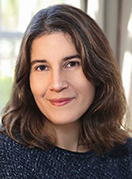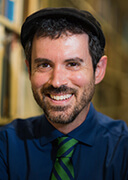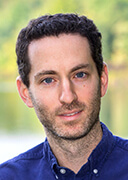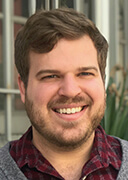Advice to Myself by Lila Corwin Berman
Getting the Most Out of the AJS Conference by Joshua Furman
You’ll Fit Right In by Josh Lambert
Making the Most of the AJS by Geoffrey Levin
I’m not a fan of advice giving, probably because I don’t want to be held responsible for any advice gone awry. Whether out of modesty or narcissism, I’ll turn the assignment inward: instead of telling you how to make your AJS conference better, I’ll tell you how I’m planning to improve my own conference experience this year.
(1) Don’t read. This is my big one. I’m going to try to give a paper without reading directly from it. Instead, I’ll look up. I’ll refer to just a few notes. I’ll have practiced so I don’t ramble and exceed my time limit. In doing all of this, I’ll try to connect with the people in the room, all of whom are as capable of reading my paper as I am. Transgressing this norm of conference comportment may, in the end, allow us to transgress other ideological and intellectual norms that have stultified what we do and don’t talk about together.
(2) Meet new people. I have my buddies—grad school comrades, fellow travelers in my own subfield, and a few others—and I love the chance to catch up with them. The best conference experiences I’ve had, however, reflect my willingness to approach new people and learn from them. That’s the intellectual justification for a conference in real time with real people. So I’m going to try to take advantage of the opportunity.
(3) Commit to a session. In the last few years, my track record of session attendance has been, well, abysmal. So, not only do I hope to attend more sessions, I also am going to make an effort to avoid session hopping. In the past, I have convinced myself that I can curate my own conference session, by hearing person x at one panel and then moving to hear person y at a different panel. Never works. My timing is almost always off, and I end up feeling awfully rude. So this year, even if I attend fewer sessions, I’m going to try hard to commit and truly be part of a session, so I can ask questions responsibly and without qualification (“I came in late, so I don’t know if someone already covered this, but….”)
(4) Go outside. Note: this is not the same as going for a stroll in the mall, which inevitably fuels a shoe-buying habit.
(5) Don’t look over people’s shoulders. It’s common conference practice to scan nametags, see who’s who. No problem. But I’ve noticed that I sometimes do this while talking to someone. Not nice. I will try to stop.
(6) Follow up. Often, during a conference, I’ll feel inspired by a person or idea, and then I’ll wait an entire year to feel re-inspired by the same person and idea. This year, I’m going to work to extend good conversations beyond the conference. I’ll stop thinking of AJS as simply an annual touchstone and instead will imagine it as a starting point.
(7) Buy shoes. Even if all my advice to myself backfires, I might as well come out of the whole thing in style, right?

Lila Corwin Berman is the Murray Friedman Chair of American Jewish History, associate professor in the Department of History, and director of the Feinstein Center for American Jewish History at Temple University.
For scholars interested in all things Jewish Studies, the AJS annual conference provides the single most important forum in the world for the exchange of research, ideas, and business cards. Even if you are not presenting your work or participating on a panel, attending the conference will give you insights into the newest trends in your field and enable you to network face-to-face with colleagues from around the globe who share your interests. Here are a few suggestions to help you get the most out of your time at the conference:
Plan ahead: Compared to the major conferences of other disciplines, AJS is not so large and daunting in terms of sheer size. Nevertheless, with as many as seventeen panels happening at once, in addition to special events and receptions, it’s best to plan ahead to be sure you make the most of your time. To find the panels and events of most interest to you, study the conference program on the app or on the website (https://associationforjewishstudies.org/2021program).
Reach out: My doctoral program had a very small cohort of candidates in Jewish history, so the AJS provided a vital opportunity to connect with both graduate students and senior scholars at other institutions. As I was developing my dissertation, I benefited immensely from the opportunity to grab a cup of coffee and get advice from others working in my field. These valuable meetings rarely happen organically, however, because the conference schedule is so full. In my experience, if contacted in advance, most scholars will be happy to meet with you for breakfast or coffee if their schedules allow.
Branch out: If you can, try to attend at least one panel or workshop completely outside your area of expertise. This might be easier said than done, but you’ll benefit from hearing ideas and perspectives from colleagues who work in other fields. For those of us who will teach survey or “big picture” courses in Jewish Studies, this can also serve as inspiration to refresh and revise our syllabi.
Play Fair: Just like voting in Chicago, be sure to visit the Book Fair “early and often.” If you can be patient, there are good deals to be had on the last day of the conference, when publishers don’t want to schlep their wares home. This is also a valuable opportunity to meet and talk with university press editors, and to get a firsthand sense of what publishers want.
Eat, drink, and be merry: At the end of a long day of panels and academic discussions, don’t miss the opportunity to wine, dine, and socialize at the various evening receptions that take place, most of which are open to all conference registrants.
See you in Chicago!
Please note: This article was slightly updated in December 2021.

Joshua Furman is lecturer and associate director of the Program in Jewish Studies at Rice University, where he also serves as curator of the Houston Jewish History Archive.
The first thing I'd tell people coming to the Association for Jewish Studies' annual conference in December for the first time is that if you're not sure where you'll fit in, you'll fit right in.
The field of Jewish Studies is, of course, riotously interdisciplinary; relatively few of the people who show up at the AJS conference, even those of us who go reliably every year, have PhDs in Jewish Studies, or teach primarily in a Department or Program of Jewish Studies. So if you're not sure that you're quite "Jewish Studies" enough, or if you feel, as you browse the conference program, that a lot of what you’re seeing lies far afield from your own interests, you'll be in excellent company. The conference attracts a motley assemblage of classicists and postmodernists, anthropologists and archaeologists and artists and theologians. (To paraphrase an old joke: two conference attendees, three disciplines.) So look for the people speaking your language (literally or figuratively), and don’t worry too much about the rest.
To graduate students and others who are new to the large conferences put on by professional organizations, in general, I’d suggest keeping in mind that at a conference like this, socializing really is work. I remind myself this, every year, and only in part to assuage the guilt I feel for being away from my spouse and kids for several days, spending a lot of it chatting over coffee or beer and catching up with people I really like and talking about ideas that fascinate me: it doesn’t always feel like work, you know?
As a social event, the AJS conference is big enough that there will always be new people, and to ensure that nobody knows everybody, yet it is small enough so that it fits into a single hotel (unlike some other unpleasantly gargantuan academic conferences I could name). After attending AJS for a couple of years, you get to the point where you start to recognize a lot of the faces. Here’s how I would advise people to make the most of it. Even if you missed the call for the new AJS mentorship initiative, or if you’re too senior to feel like mentorship of this kind is a good fit for you, you should email scholars you admire a couple of weeks in advance of the conference (i.e., now!) and ask for fifteen minutes for a coffee. They may genuinely be too busy, so don’t take it personally if they demur, but most will be able to find a few minutes to talk. Come prepared with questions and genuine praise for their work and you'll be well-received. That’s not to say that you should “network” (or, frankly, use that noun as a verb, ever): it’s to say that part of the pleasure of the conference is getting to meet people whose work matters to you.
One last request, for all attendees: there’s nothing like a conference to get gossip flowing, but watch it. Aside from the prohibition on rechilut (which does not seem strictly observed in academia generally, and certainly not in Jewish Studies circles), think pragmatically: unless you’ve traveled quite far from the conference hotel, there’s likely to be an AJS member in every elevator and around every corner, and they may not be wearing their conference badges, either. And it’s more likely than not that the person who overhears you will happen to know the person who you’re just about to witheringly disparage. So if you feel compelled to share the news of someone’s faux pas, or inquire about so-and-so’s recent scandalous whatever-it-was, do it behind closed doors or somewhere you’re certain is private.
Please note: This article was slightly updated in December 2021.

Josh Lambert is the Sophia Moses Robison Associate Professor of Jewish Studies and English, and director of Jewish Studies at Wellesley College.
If you are a graduate student presenting for the first time at AJS this year, you might be focused on perfecting your presentation. But remember, academic conferences offer far more than just feedback on your research. AJS represents an opportunity for you to contribute to the greater scholarly community while simultaneously broadening your intellectual and professional circles. As someone who attended several AJS conference while in graduate school, here are some of my recommendations for making the most of your conference experience:
» Start planning before the conference. Touch base with former faculty members from your undergraduate or master’s programs. If you would like to catch up with them in-depth, consider emailing in advance to schedule a specific time for coffee or a meal, as people’s conference schedules can be very busy.
» Put thought into which panels you choose to attend. Do not rule out panels outside your discipline; conferences are a great place to consider different academic approaches. While sitting in on your friends’ panels can be nice, be sure not to miss out on any panels that might be intellectually valuable to you.
» Don’t be discouraged by limited audience attendance. Some of the best panels I have ever attended had less than a dozen people in the room.
» In your presentation, be sure to mention if and how it fits with your dissertation and other research interests, and certain audience members might be interested in speaking to you afterward about your broader project.
» Never be afraid to introduce yourself to graduate students and faculty around you. If you found a presentation particularly relevant, feel free to approach the panelist afterward to continue the conversation.
» PowerPoint slides can enhance your presentation, but make sure you are not reliant on them. Technical issues do arise! Be sure to come prepared with a Mac adapter if necessary, and always have a backup plan. And of course, never plan on simply reading from a text-heavy PowerPoint.
» Make the most of your meals. Lunch breaks can be a great time to get to know other graduate students better – in my case, conferences often strengthened my personal and academic bonds with my peers from New York University. Advanced graduate
students and recent PhD graduates are a great asset for learning more about the path ahead of you.
» Take advantage of any mentorship opportunities that AJS has to offer. Having a one-on-one conversation with a senior scholar whom
you otherwise would not have met is a valuable learning opportunity.
» You may be inclined to be modest, but you should also view yourself as an asset for others, particularly fellow graduate students. Feel free to introduce colleagues
who have similar interests. Critiquing the work of scholars can sometimes feel intimidating, or a balancing act weighing the desire to be deferential, polite, and respectful. Use your best judgment, but remember – you are there to contribute!
Please note: This article was slightly updated in December 2021.

Geoffrey Levin is assistant professor of Middle Eastern and Jewish Studies at Emory University.